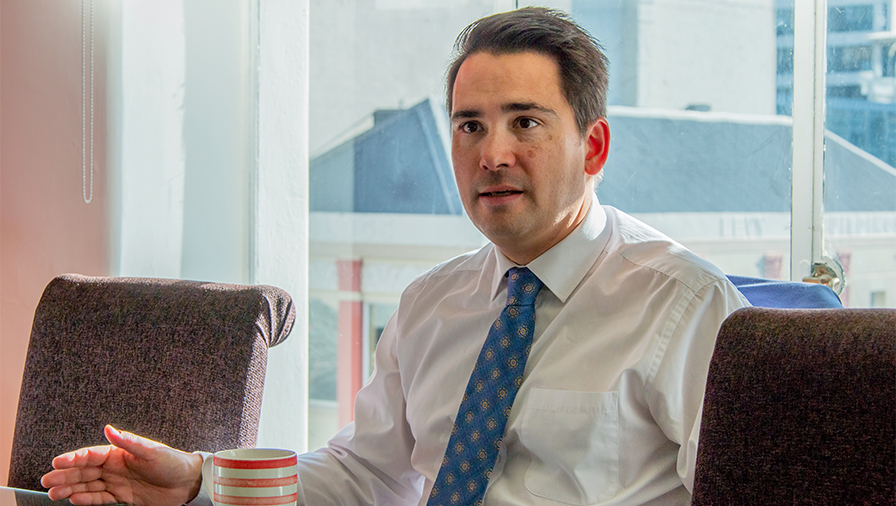Louisa Wall’s new job, climate change, friction over MHA
ANALYSIS: Act leader David Seymour slams Cancer Society for what he calls a political stunt.
ANALYSIS: Act leader David Seymour slams Cancer Society for what he calls a political stunt.
Just a week after Labour list MP Louisa Wall announced she was quitting politics, she has picked up a plum job as ambassador for gender equality in the Pacific.
Coincidence? Unlikely.
Wall has had an often-prickly relationship with her Labour colleagues and her de-selection as the candidate for Manurewa in 2020, a seat she had held since 2011, was a clear sign of the fracture between her and the party. By easing her out of politics – with a job to go to – Labour avoids the acrimony of a disgruntled MP or ex-MP firing pot shots at it.
On the other hand, Wall has long been an advocate for gender equality and for LGBTIQ+ rights (LGBTIQ stands for lesbian, gay, bisexual, transgender, intersex, and questioning). She makes that point in her biography on the parliamentary website.
“I am a passionate member and advocate for our LGBTIQ+ Rainbow community. One of my proudest moments was helping achieve marriage equality in New Zealand with the Marriage Amendment Act in 2013. I will continue to work hard with and for our community to ensure LGBTQI rights are upheld in New Zealand and globally,” she said.
Wall is a member of the Global Equality Caucus for LGBTIQ+ citizens, which has a collective goal of global homosexual law reform.
“Governments should be held to account for discriminating against their LGBTIQ+ citizens. To progress our collective human rights, we must be vocal in our opposition to this form of oppression and subjugation for being who we are,” she said.
In her new job, Wall will get the opportunity to put that goal into action, although as an ambassador, she will undoubtedly have to focus on diplomacy as she tries to convince Pacific Island nations to support gender equality and LGBTQI+ rights.

Laudable aim
And details of her new job remain hazy. In a statement announcing her appointment, Foreign Affairs Minister Nanaia Mahuta said as ambassador Wall would establish new partnerships and programmes that support the full and effective participation by women and LGBTQI+, and equal opportunities for leadership at all levels of decision-making in political, economic, and public life in the Pacific. That is a laudable aim, but it might be another matter convincing some Pacific nations to meet that ambition.
Whatever the merits or otherwise of the appointment – and Wall’s background and experience makes her eminently qualified for the role – the timing of the appointment just smacks of political opportunism.
But it has hardly worked the way Labour might have wanted. Over the weekend, Wall told news media, from the New Zealand Herald to TVNZ’s Q+A programme, that Prime Minister Jacinda Ardern had not wanted her in the Labour caucus, let alone the Cabinet. Wall puts her lack of support from Ardern down to the fact the outgoing MP had supported David Cunliffe when he made bids for the leadership in 2011 and 2013.
Wall, along with former National Party leader Simon Bridges, will give her valedictory speech to Parliament this week. There will be interest now in whether she will use her speech to settle any political scores, although once she takes up her new job soon after, she will be much more constrained in what she can say. Ardern will face questions about why she did not rate Wall.
Also this week there is likely to be more debate on Te Paati Māori co-leader Rawiri Waititi’s suggestion that Māori should start receiving New Zealand Superannuation from age 57 because, on average, they die earlier than other New Zealanders. His suggestion comes as National and Act continue to oppose the Government’s move to set up a Māori Health Authority as part of its efforts to turn around the worse health outcomes Māori suffer.
The Cancer Society, along with a range of other non-government health bodies, called on both National and Act to support the creation of the Māori Health Authority. But the Cancer Society got a quick serve from Act leader David Seymour, who said it was sad to see the organisation being hijacked by political activism.

Extraordinary stunt
“They should stick to advocating for all cancer patients instead of stunts like writing open letters to politicians,” Seymour said.
It seemed an extraordinary attack on a well-respected organisation and contradicts Act’s own strong advocacy for free speech.
Issues to do with Māori will continue to be a touchstone for debate as Act, in particular but now also National, appears to want to exploit some public disquiet about co-governance. It is worth debate but hopefully one based on a rational consideration of the issue, rather than on political expediency. Otherwise, the debate will become much uglier and more divisive than it needs to be.
‘The political pressures of the three-year electoral cycle could trump the longer-term decision-making needed to respond to climate change.’
While the Government will continue to face pressure over that issue, it also continues to grapple with what it does to reduce this country’s greenhouse gas emissions. The latest Intergovernmental Panel on Climate Change (IPCC) report has again underlined how serious the threat of global warming is and how little time the world has to finally start to bring emissions down.
The Government is due to release its emissions reduction plan next month, around the time of the May 19 Budget, which will also include some big-spending items aimed at cutting emissions. But none of this will come without cost and, already, cost-of-living increases are out of control. Will the Government proceed with initiatives that might push up the cost of high-emission products and will Opposition parties stand by quietly if it does?
With an election just next year, the political pressures of the three-year electoral cycle could trump the longer-term decision-making needed to respond to climate change.

Tauranga by-election
And talking of elections, the Tauranga by-election is getting into full swing. Labour’s candidate is Internal Affairs Minister Jan Tinetti, who ran retiring National Party MP Simon Bridges close at the last election. But Labour is downplaying its prospects in the by-election, saying it has no expectation of winning. Act has chosen its 2020 candidate Cameron Luxton to stand again, while National will not choose its candidate until May 1, giving that person just seven weeks to the by-election on June 18.
As people head into the Easter weekend, they will also be waiting with anticipation for the Government to announce any changes to the red light setting under the Covid-19 Protection Framework. Last week, the whole country was left on the red light setting, including Auckland, because of fears the Omicron outbreak was still to peak in some parts of the country.
By this Thursday, the prospects should look much better. At the end of last week, the seven-day rolling average of community cases had fallen to 11,281, compared with 14,171 a week earlier. Hospitalisations were also down, and outgoing Director-General of Health Dr Ashley Bloomfield said the weekly rate of cases had fallen in the past week from 22.5 per 1000 people to 18.5.
If that improvement continues this week surely Auckland at least – but also other parts of the country – will move to orange, meaning even more freedom for hospitality venues to operate during the long weekend and beyond.
Brent Edwards is NBR’s political editor.
Sign up to get the latest stories and insights delivered to your inbox – free, every day.